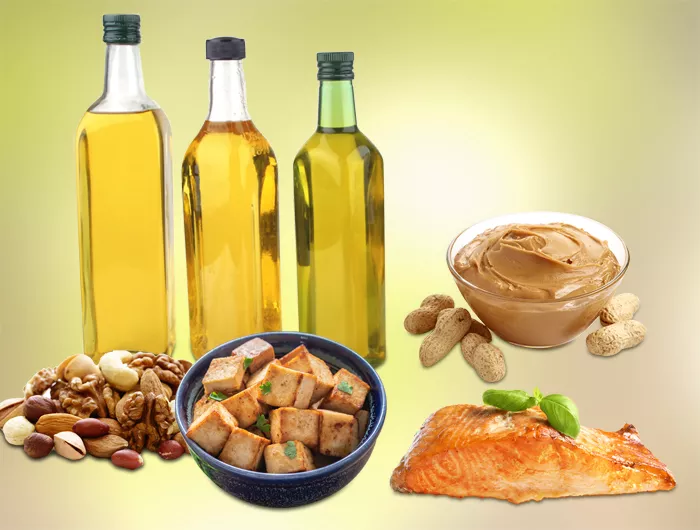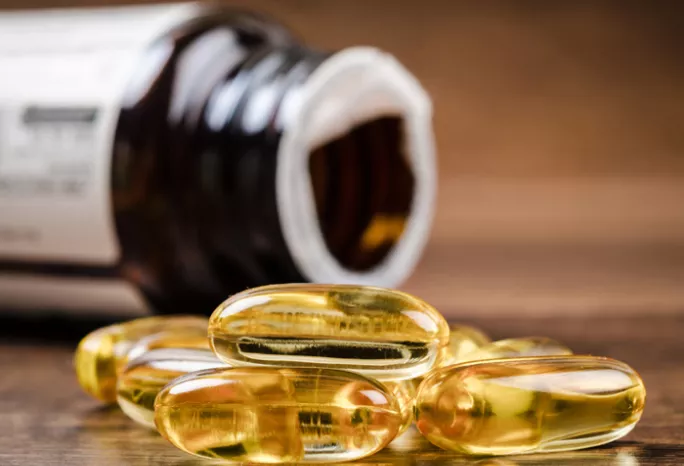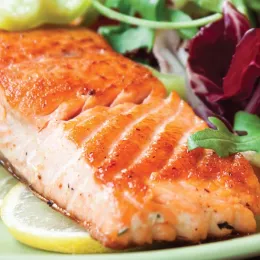The good fats

All fats are a mix of saturated, monounsaturated, and polyunsaturated fatty acids, though people usually categorize them by the fatty acid that predominates.
The good fats include monounsaturated fats (like avocado, canola oil, olive oil, safflower, and sunflower oil) and polyunsaturated fats (like fish, nuts, seeds, soy foods, sesame oil, and soybean oil).
Here's how much of those "good" fatty acids are in common food sources of oils and fats:
Which fats are the most heart healthy?
“The data are stronger for polyunsaturated fats than for the monounsaturated fats in olive oil and canola oil,” says Frank Sacks, professor of cardiovascular disease prevention at the Harvard T.H. Chan School of Public Health.
“Polyunsaturated fats lower LDL—or “bad”—cholesterol more than monos and have anti-inflammatory effects,” explains Sacks, who led the expert panel that wrote the American Heart Association’s Presidential Advisory on Dietary Fats and Cardiovascular Disease.
And when researchers talk about heart healthy polyunsaturated fats, “it’s not just the omega-3 fats in fish oil but the omega-6 fats in soybean and other oils,” he adds.
Omega-6 fats don’t cause inflammation
Some people claim that omega-6 fats cause inflammation, but the evidence doesn’t bear that out.
One source of the claim: Omega-6 fats like linoleic acid can be converted to arachidonic acid in the body.
“And arachidonic acid can get converted to prostaglandins, which can set off inflammatory responses to infection and injury,” notes Sacks.
But hardly any linoleic acid actually gets converted to arachidonic.
“Although the pathway is there, it’s not active unless there’s a deficiency of omega-6 fats,” adds Sacks. And that rarely happens because arachidonic acid levels are so tightly controlled.
“So when you eat omega-6s, you’ll see an increase in linoleic acid, but you won’t see an increase in arachidonic acid or prostaglandins.”
Studies find no increase in inflammatory markers when people are given foods rich in omega-6s. And when researchers tracked roughly 70,000 people from 30 studies, those with the highest blood levels of linoleic acid a lower risk of cardiovascular disease.
What’s more, when people were randomly assigned to eat more omega- 6 fats instead of saturated fats, they had a lower risk of heart disease.
“There is no [good] clinical research that shows adverse effects for omega-6 fats,” says Sacks. “In fact, studies actually show beneficial effects.”
Where to find the good fats
Oils

Most oils are either monounsaturated or polyunsaturated. Canola and olive are among the most popular monounsaturated oils. Soybean is the most common polyunsaturated oil.
Keep in mind that oils don't come only from your bottle of cooking oil. Odds are, you get mostly soybean oil in salad dressings, mayonnaise, tub margarines (or spreads), and in many packaged or restaurant foods. So you’ll probably end up with a good mix of unsaturated fats if you use canola oil and olive oil (when you want its flavor) for cooking.
Exceptions: coconut, palm, and palm kernel oils are saturated. Coconut and palm kernel oil are often used to make so-called yogurt coating and chocolate coating because they stay solid at room temperature.
Olive oil
In 2013, the PREDIMED (Prevención con Dieta Mediterránea) study made headlines.
Spanish researchers reported that high-risk people who were randomly assigned to eat either of two “Mediterranean” diets had a remarkable 30 percent lower risk of cardiovascular events (mostly strokes) than those on a so-called “low-fat” diet. But the headlines were wrong:
Although one group was told to eat a lower-fat diet, all three groups ate a Mediterranean diet. The key difference between the three groups: people who were given extra-virgin olive oil ate more of it, and those who were given more nuts ate more nuts.
(Also, the trial wasn’t properly randomized, so it was retracted and republished with similar results in 2018.)
The bottom line: the PREDIMED study suggests—but doesn’t prove—that extra-virgin olive oil can protect against strokes and heart attacks, and not just because it’s a good source of monounsaturated fat.
Nuts and seeds

Overall, nuts and seeds (and their butters) are loaded with unsaturated fats, but they vary. Walnuts and sunflower seeds are especially rich in polys. Cashews and hazelnuts are among the highest in monos.
The PREDIMED study suggests—but doesn’t prove—that nuts can help lower the risk of heart attacks and strokes. And the participants didn’t eat much. Those who were given nuts—a mix of almonds, hazelnuts, and walnuts—ate an extra sixth of a cup of nuts a day. That’s only about 120 calories’ worth.
PREDIMED isn’t the only evidence that nuts may protect your arteries. Smaller, shorter studies have reported that eating nuts lowers LDL (“bad”) cholesterol. Your best bets are walnuts, pecans, almonds, peanuts, pistachios, hazelnuts, and most seeds. Macadamias, cashews, and Brazil nuts have more saturated and less unsaturated fat.
Nuts and seeds are high in calories per bite, so it’s easy to go overboard. Try sprinkling toasted nuts a salad instead of croutons or tossing them onto your (unsweetened) cereal with fresh fruit. The taste? Delicious...and you’ll get fewer calories per bite than eating nuts straight out of a bag or bowl.
Fatty fish

The American Heart Association advises everyone to eat seafood (including fish and shellfish) once or twice a week. That’s partly because its long-chain omega-3 fats (EPA and DHA) may lower the risk of heart attacks and stroke. What’s more, seafood can replace the saturated fats in red meat.
Soy foods

Soybeans are a good source of polyunsaturated fats. That includes edamame (ed-ah-MAH-may), which are immature (green) soybeans that take minutes to cook. It also includes the foods made from soybeans (like tofu and tempeh) and some foods (like plant-based chicken or meat) made from processed soy protein.
More on the good fats

STAY IN TOUCH
Our best (free) healthy tips
Our free Healthy Tips newsletter offers a peek at what Nutrition Action subscribers get—healthy recipes, scrupulously researched advice about food of all kinds, staying healthy with diet and exercise, and more.





